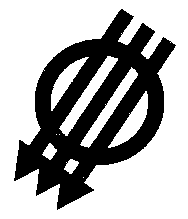A 1931 article on socialism, nationalism, and the nation, by German Social-Democrat Hermann Heller

The tumultuous interwar years in Weimar Germany were characterized by a number of unusual political trends which sought to syncretize competing ideas from both the Left and Right. National Socialism and the Conservative Revolution were the most obvious examples of this ideological synthesis, but there were manifestations of it even on the more democratic end of the political spectrum (the Jungdeutscher Orden) and also among the Communists. The Social-Democrats, despite their internationalism, were also not immune to this phenomenon; the Social-Democratic Party (SPD) too had its own small nationalist current, part of the broader reformist wing of the movement, whose members were particularly active contributors to the ‘revisionist’ journal Sozialistische Monatshefte, as well as to Die Arbeit, the official theoretical publication of the largest trade-union federation. Beginning in January 1930 these ‘neorevisionists’ also began publishing their own monthly: the Neue Blätter für den Sozialismus, which put out articles with such titles as “We and the Young Nationalists” or “The Presence and Significance of Conservative Tendencies in Social-Democracy.” This neorevisionist faction had not sprung up out of nowhere – many of its members had previously been active in the Hofgeismarkreis and the Berliner Kreis, small intellectual circles which had emerged within the SPD youth movement around the time of the 1923 Ruhr crisis, and which had sought then (somewhat controversially) to intellectually ground German Social-Democracy upon a foundation of ‘Nation’ and ‘Volk’ rather than class. Despite these unifying nationalist tendencies, the neorevisionists were in general a diverse and eclectic group, ranging from right-leaning reformists, to religious socialists, to market-socialists, to radicals whose political ideals were only vaguely distinguishable from those of Otto Strasser or Hans Zehrer. Many, curiously, were also actively involved in the leadership of the Iron Front, and most became committed activists in the antifascist resistance after 1933 (although not all – at least one, Walter Pahl, became a supporter of National Socialism, while another, Fritz Borinski, ended up in the orbit of the Black Front). One of the most prominent neorevisionist thinkers was Jewish-German jurist Hermann Heller, who today tends to be more known for his constitutional scholarship than for his socialist theorizing. Heller’s 1925 work Sozialismus und Nation (re-released in a revised edition in 1931) was held in very high regard among neorevisionists, and is probably the most detailed outline of their general, collective worldview. The short article by Heller below, which references this work, is a classic example of this style of Social-Democratic writing, dealing as it does with German socialism’s difficulties in engaging with nationalist sentiment, while also presenting Social-Democracy as the only political force truly capable of safeguarding the German nation.
National Socialism1
Hermann Heller

First published in Neue Blätter für den Sozialismus, vol. 2, no. 4, April 1931.
Ever since the 30 Years’ War, the national destiny of the German Volk has been consistently and decisively determined by the political incompetence of its bourgeoisie. Even the state-building power of nationalism, as shaped within the bourgeois revolutions, has been incapably utilized by bourgeois politics. Since the failed revolution of 1848, the political idea of a comprehensive national cultural community has been transformed into the narrow and repressed national conception of a Treitschke.2 As recently as 1902, for example, the widely-disseminated work “Was ist national?” by Professor Kirchhoff3 was claiming that one would never be able to commit to including the German-Austrians as part of the modern German nation – the same German nation to which, meanwhile, the Prussian Poles admittedly belonged.
How meagre the sense of national responsibility of the Wilhelmine state’s ruling classes was, was demonstrated most clearly when they organized themselves after the revolution into the “German National” People’s Party, and thus made into a party name what should have been, or what should have become, an appellation for the entire Volk.
As the bourgeoisie muddled up the nation with the Prussian-German state, worshipping it with Hegel as the realization of the moral idea, as God on Earth, so did Marx-Engels now fight against this bourgeoisie with a lopsided, narrow, and repressed conception of state and nation. For them the state was always only the realization of an immoral idea, namely the necessary evil of the class state, which was to vanish with the end of class rule; just as, according to their truly Mancunian perspective, national separations and differences were destined to gradually come to an end with the development of the bourgeoisie, with free trade, the world market, and the uniformity of industrial production. Continue reading
